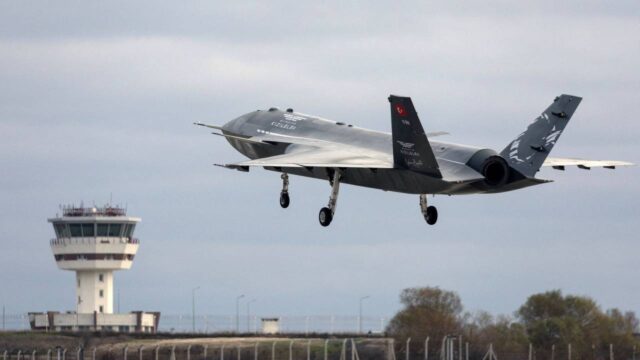In August of last year, Baykar CTO Selçuk Bayraktar said that they established a new company called Fergani, which can compete in space even with big names such as SpaceX, which was founded by Elon Musk. Before the end of the first year, we saw that the first concrete steps were taken. Zira Fergani Team Satellite Project has started.
Fergani Team Satellite Project meets space in 2024!
Baykar Defense Technical Manager Selçuk Bayraktar pointed to space by shedding light on the future of the company in a television program he attended after Teknofest last year. The future of aviation and technology lies here.
Of course, we can say that the company started with the discarded aircraft, followed by the Bayraktar TB2 with a weight of 650 kg and then the Akıncıs with a weight of 6 tons, that is, it took firm steps forward. We know that the next target is the development of the unmanned warplane project MIUS/Red Red in the next 15 years.
But the company seems to be turning its face to space in the near future, though not entirely. Selcuk Bayraktar said that they have also established a new space and aviation company called Fergani and that they can both compete and work together with large companies such as SpaceX with the work they will do here. As a matter of fact, his first project appeared before the year of the announcement was over.
Within the scope of the Team Satellite Project developed by Fergani, Baykar’s subsidiary company, sleeves were rolled up for the satellites to be developed within Baykar with domestic facilities up to their subsystems. It turns out that the first test satellite is planned to be launched in 2024. Soon after, we can see many experimental satellites. However, Fergani will not only produce satellites and send them into space. So what awaits us?
What will Fergani do?
Fergani will first start developing low-orbit satellite systems. Here, SpaceX’s Starlink satellite internet company will focus on transporting small-sized satellites to LEO orbit (160 km-2 thousand km).
Another step in this direction will be reusable systems. Selcuk Bayraktar also states how Musk saves money by reusing Falcon 9 rockets, which can land on the ground after leaving his load in space, and that the future is in this area.
But he states that their main goal here is not to make a system that rivals Falcon 9. Instead, he says that the booster, that is, the mini rocket, which places the satellite in orbit after leaving the rocket, does not return, and in fact, if the vehicle in between is used again, like Musk’s rockets, the costs will decrease considerably.
In other words, Fergani’s second goal is to develop this system, which has not been put into operation yet, although several companies are working on it, and to achieve a good position in the space and aviation industry, just like in unmanned aerial vehicles.
What is Team Satellite? What does Fergani aim for?
The official statement by the company says:
Services provided via satellites in Turkey and around the world have become an increasing need. In recent years, satellites are getting smaller and mission needs are met with many low-cost satellites instead of a single high-cost satellite. In this context, Fergani Space is developing a satellite platform in accordance with the constellation satellite philosophy.
Fergani will be one of the companies that differentiate itself in the field of Team Satellites with its own developed software, hardware and cost-effective solutions provided by powerful production technologies. Fergani constellations will provide solutions with innovative technologies for many global needs in maritime, aviation, IoT, meteorology, logistics and other corporate markets.
Micro satellites in the 100 kg class produced by Fergani will serve in the altitude range of 500-600 km. These satellites will have various payloads such as communication, geolocation. These satellites, which can communicate in the Ku, Ka, S, L bands, will have a global coverage network. At the same time, the ground segment required for operations such as monitoring and managing the orbital movements of constellations and realizing satellite communication will be established.
What do you think about this subject? Don’t forget to share your views with us in the comments!

